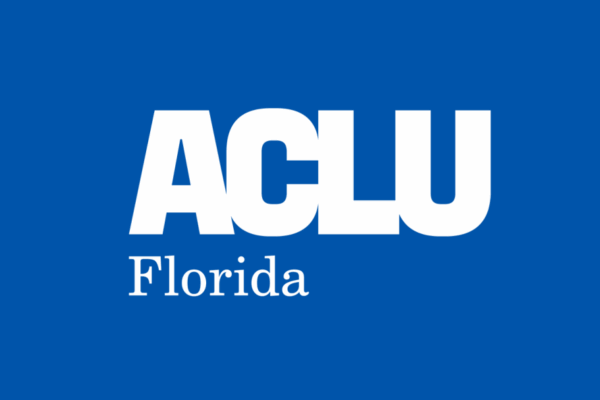MIAMI, FL – Today, the American Civil Liberties Union of Florida (ACLU-FL) sent a memo to citizen-review panels and their attorneys in 23 cities and counties across the state urging that police review boards continue their important work and refrain from overreacting to legislation recently signed by Gov. Ron DeSantis to restrict the activities of these review boards.
On Friday, April 12, 2024, Gov. DeSantis signed House Bill 601 into law as Chapter 2024-86, Laws of Florida. The ACLU-FL memo cites a number of media outlets that have incorrectly overstated the effect of HB601, some going so far as to assert that the legislation effectively bans, dissolves, or disbands the numerous citizen-review panels currently operating in Florida.
The ACLU-FL memo highlights the disconnect between what the HB601 language actually does and what some claim that it does. The ACLU-FL shows that the legislation has little or no practical effect on existing citizen-review panels in Florida. The legislation applies only to panels created by ordinance, not those that community groups created through a charter amendment or the authority of government officials such as sheriffs and mayors. The substantive provisions of the new law do not prohibit what current ordinance-created panels do now.
The ACLU-FL memorandum also provides guidance to citizen review panels, city attorneys, county attorneys, and independent attorneys representing the review panels.
“Police unions should be welcoming transparency because it enhances trust between law enforcement and the communities they police,” noted Tampa-based ACLU of Florida cooperating attorney James Michael Shaw, Jr., one of the authors of the ACLU-FL memo. “Instead, they lobbied for a bill that doesn’t really change anything but exposes how much they wish the public would stop paying attention to them.”
Shaw added: “This bill couldn’t – and didn’t – give the police unions what they really wanted, which was silence from the public while police alone decide whether they have abused the tremendous power we’ve entrusted to them. But it’s not reasonable, safe, or American to want the kind of power that police have without the public scrutiny that comes with it.”
Howard Simon, Interim Executive Director of the ACLU-FL, said that “civilian review panels are still alive and can still perform valuable community functions despite the new legislation.”
“There is a continuing urgent need to foster citizen trust and support for the police, and it would be a huge step backward if review panels were silenced and police were left with the final word on whether police had acted inappropriately or engaged in misconduct – essentially leaving the police to investigate and police themselves,” Simon said.
Simon added: “Florida citizen-review panels continue to have the important function of reviewing a variety of law-enforcement policies and procedures, including policies on use of force, high-speed chases, and others, as well as making policy recommendations to the sheriff, police chief, and City or County for the improvement of such policies.”
“Unfortunately, there is a lot of divisive rhetoric regarding civilian review boards, and there seems to be a misunderstanding about the role of civilian review boards in Florida,” added Kara Gross, ACLU-FL Legislative Director and Senior Policy Counsel.
“This has led to the passage of HB601, which seeks to prevent CRBs from engaging in activities that they weren’t doing in the first place. Existing Florida statutes significantly limit the authority of CRBs, and nothing in HB601 disbands or dissolves civilian review boards that were already compliant with existing Florida statutes. It is unfortunate that the legislature wasted our taxpayer dollars passing legislation that has little practical effect.”
The ACLU-FL memo to 23 cities and counties is linked here.
Stay Informed
Sign up to be the first to hear about how to take action.
By completing this form, I agree to receive occasional emails per the terms of the ACLU’s privacy statement.
By completing this form, I agree to receive occasional emails per the terms of the ACLU’s privacy statement.

